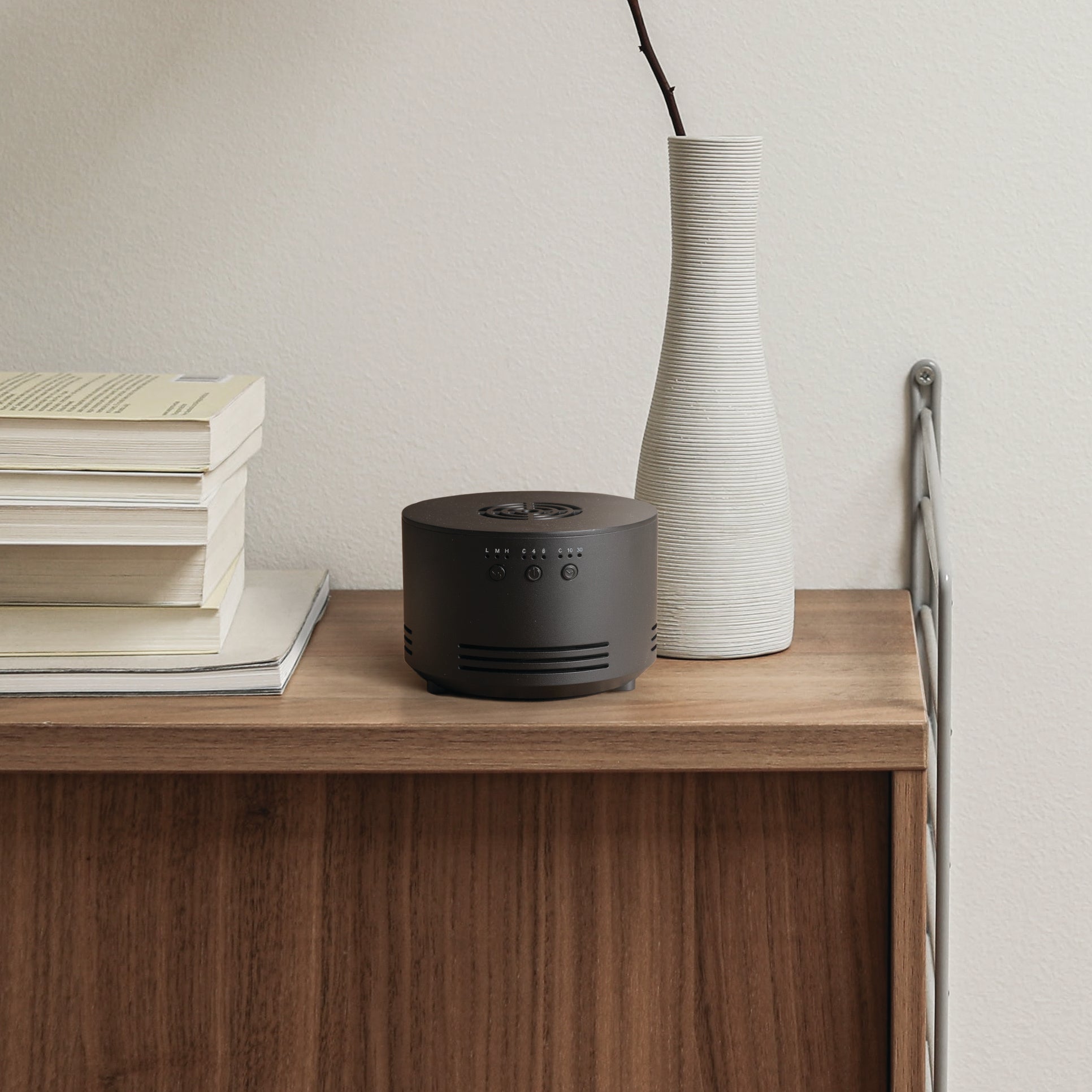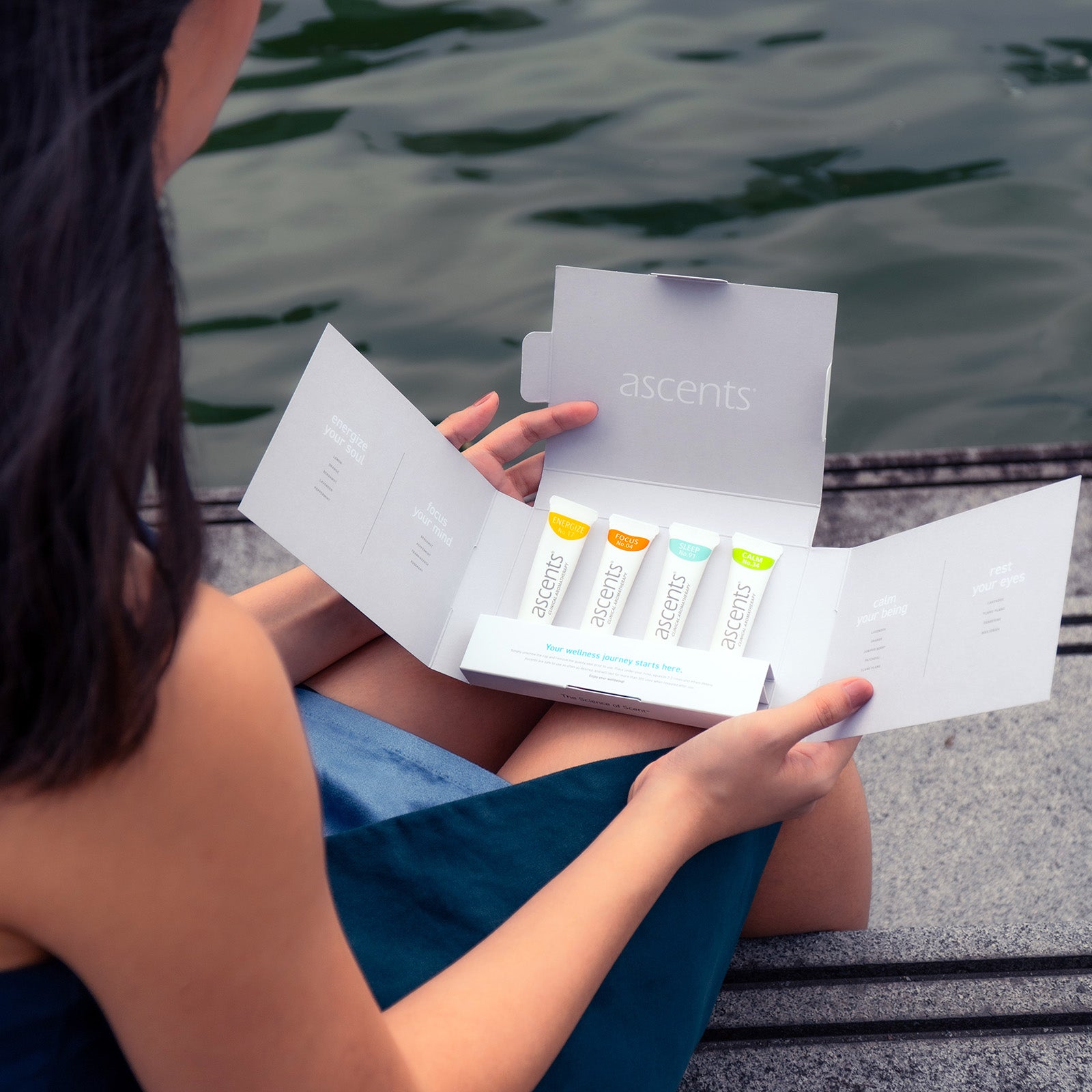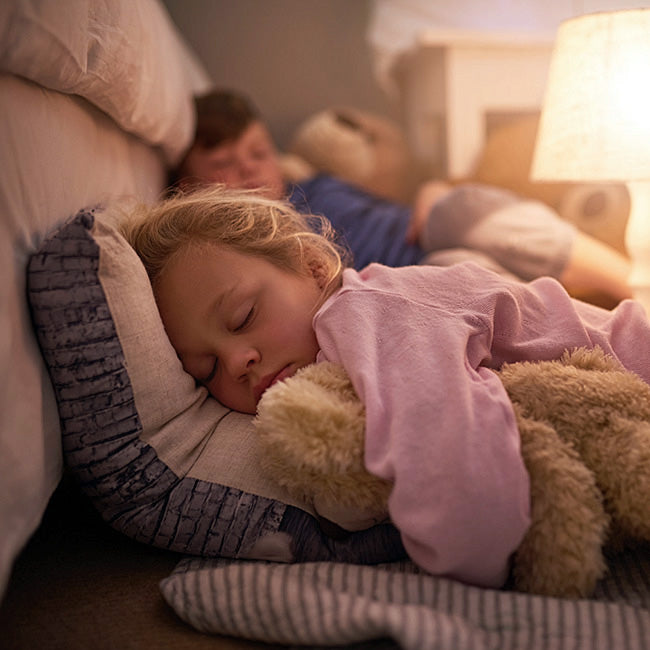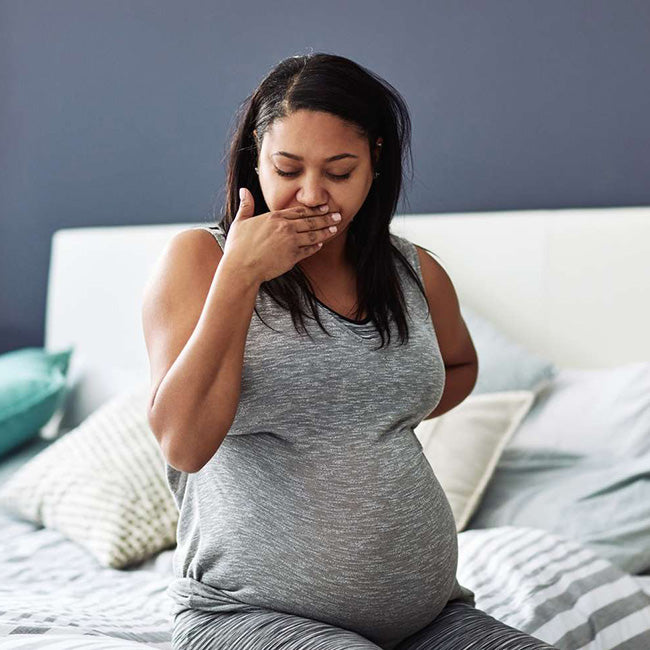Ascents® Calm No. 34: Research Abstracts for Component Oils
Effects of aromatherapy on sleep quality and anxiety of patients.
Nurs Crit Care. 2015 Jul 27. doi: 10.1111/nicc.12198. [Epub ahead of print]
Karadag E(1), Samancioglu S(2), Ozden D(3), Bakir E(4).
Author information: (1)Faculty of Nursing, Dokuz Eylül University, Turkey. (2)Health Science Faculty, Gaziantep University, Gaziantep, Turkey. (3)Faculty of Nursing, Dokuz Eylül University, Izmir, Turkey. (4)Gaziantep University Medical Hospital, Gaziantep,Turkey.
BACKGROUND: In intensive care units (ICUs), patients cannot sleep well. Aromatherapy is used for depression, anxiety, relaxation and disorders related with sleep and stress.
AIM: This study aimed to investigate the effect of lavender essential oil on the sleep quality and anxiety level of patients in coronary ICU.
PARTICIPANTS: A total of 60 patients in coronary ICU participated in this study.
DESIGN: A randomized controlled study was conducted with 60 patients in a province located in the southeast of Turkey.
METHODS: After informing the patients in both groups about the study, they were administered a questionnaire, Pittsburgh Sleep Quality Index (PSQI) and the Beck Anxiety Inventory (BAI) scale. The patients in the intervention group were given 2% lavender essential oil via inhalation for 15 days after which they were administered the same scales again to evaluate the sleep quality and anxiety. As for the control group, they were administered the same scales again after 15 days without the inhalation of lavender essential oil.
RESULTS: Comparison of the PSQI and BAI scores of the patients in the control and intervention groups before and after the intervention showed statistically significant differences in the change in favour of the intervention group (p <0·05).
CONCLUSION: Lavender essential oil increased quality of sleep and reduced level of anxiety in patients with coronary artery disease.
© 2015 British Association of Critical Care Nurses.
PMID: 26211735 [PubMed - as supplied by publisher]
The Effect of Aromatherapy Treatment on Fatigue and Relaxation for Mothers during the Early Puerperal Period in Japan: A Pilot Study.
Int J Community Based Nurs Midwifery. 2017 Oct;5(4):365-375.; Asazawa K PhD1, Kato Y Bs1, Yamaguchi A Ms2, Inoue A Bs2.
BACKGROUND: Early in the postpartum period, mothers are often nervous and tired from the delivery, breastfeeding and caring for a new-born. The aim of this study was to evaluate the process and outcome of using aromatherapy treatments to increase relaxation and decrease fatigue for mothers during the first to the seventh day of the postpartum period.
RESULTS: Valid responses were obtained from 29 participants. A comparison of the scores before and after aroma treatment intervention indicated that the participants' relaxation scores increased significantly (P<0.001) and fatigue scores were significantly reduced (P<0.001). The majority of participants (77.8%) were satisfied with the treatment.
CONCLUSION: The aroma treatments significantly improved relaxation and reduced fatigue for mothers in the early puerperal period and were well received.
Effect of aromatherapy massage on anxiety, depression, and physiologic parameters in older patients with the acute coronary syndrome: A randomized clinical trial.
Int J Nurs Pract. 2017 Dec;23(6). doi: 10.1111/ijn.12601. Epub 2017 Oct 25.; Bahrami T1, Rejeh N2, Heravi-Karimooi M2, Vaismoradi M3, Tadrisi SD4, Sieloff C5.
PURPOSE: This study aimed to investigate the effect of aromatherapy massage on anxiety depression, and physiologic parameters in older patients with acute coronary syndrome.
METHODS: This randomized controlled trial was conducted on 90 older women with acute coronary syndrome. The participants were randomly assigned into the intervention and control groups (n = 45). The intervention group received reflexology with lavender essential oil, but the control group only received routine care. Physiologic parameters, the levels of anxiety and depression in the hospital were evaluated using a checklist and the Hospital's Anxiety and Depression Scale, respectively, before and immediately after the intervention.
RESULTS: Significant differences in the levels of anxiety and depression were reported between the groups after the intervention. The analysis of physiological parameters revealed a statistically significant reduction (P < .05) in systolic blood pressure, diastolic blood pressure, mean arterial pressure, and heart rate. However, no significant difference was observed in the respiratory rate.
CONCLUSIONS: Aromatherapy massage can be considered by clinical nurses an efficient therapy for alleviating psychological and physiological responses among older women suffering from acute coronary syndrome.
Effect of sweet orange aroma on experimental anxiety in humans.
J Altern Complement Med. 2012 Aug;18(8):798-804. doi: 10.1089/acm.2011.0551. Epub 2012 Jul 31.; Goes TC1, Antunes FD, Alves PB, Teixeira-Silva F.
OBJECTIVES: The objective of this study was to evaluate the potential anxiolytic effect of sweet orange (Citrus sinensis) aroma in healthy volunteers submitted to an anxiogenic situation.
RESULTS: Unlike the control groups, the individuals exposed to the test aroma (2.5 and 10 drops) presented a lack of significant alterations (p>0.05) in state-anxiety, subjective tension and tranquillity levels throughout the anxiogenic situation, revealing an anxiolytic activity of sweet orange essential oil. Physiologic alterations along the test were not prevented in any treatment group, as has previously been observed for diazepam.
CONCLUSIONS: The present results indicate an acute anxiolytic activity of sweet orange aroma, giving scientific support to its use as a tranquilizer by aromatherapists.
Effect of aromatherapy with orange essential oil on salivary cortisol and pulse rate in children during dental treatment: A randomized controlled clinical trial.
Adv Biomed Res. 2013 Mar 6;2:10. doi: 10.4103/2277-9175.107968. Print 2013.; Jafarzadeh M1, Arman S, Pour FF.
Materials and Methods: Thirty children (10 boys, 20 girls) aged 6-9 years participated in a crossover intervention study, according to the inclusion criteria. Every child underwent two dental treatment appointments including dental prophylaxis and fissure-sealant therapy under orange aroma in one session (intervention) and without any aroma (control) in another one. Child anxiety level was measured using salivary cortisol and pulse rate before and after treatment in each visit. The data were analyzed using t-test by SPSS software version 18.
Results: The mean ± SD and mean difference of salivary cortisol levels and pulse rate were calculated in each group before and completion of treatment in each visit. The difference in means of salivary cortisol and pulse rate between treatment under orange odor and treatment without aroma was 1.047 ± 2.198 nmol/l and 6.73 ± 12.3 (in minutes), which was statistically significant using paired t-test (P = 0.014, P = 0.005, respectively).
CONCLUSION: The use of aromatherapy with natural essential oil of orange could reduce salivary cortisol and pulse rate due to child anxiety state
Positive modulation of mood and cognitive performance following administration of acute doses of Salvia lavandulaefolia essential oil to healthy young volunteers.
Physiol Behav. 2005 Jan 17;83(5):699-709.Tildesley NT1, Kennedy DO, Perry EK, Ballard CG, Wesnes KA, Scholey AB.
Results: Mood was consistently enhanced, with increases in self-rated 'alertness', 'calmness' and 'contentedness' following the 50-microl dose and elevated 'calmness' following 25 microl.
Conclusion: These results represent further evidence that Salvia is capable of acute modulation of mood and cognition in healthy young adults. The data also suggest that previous reports of memory enhancement by Salvia may be due to more efficient retrieval of target material.
Aromatherapy: The Effect of Lavender on Anxiety and Sleep Quality in Patients Treated With Chemotherapy
Clin J Oncol Nurs. 2018 Apr 1;22(2):203-210. doi: 10.1188/18.CJON.203-210.; Ozkaraman A1, Dügüm Ö2, Özen Yılmaz H1, Usta Yesilbalkan Ö3.
BACKGROUND: A cancer diagnosis is a serious stressor that is associated with anxiety, depression, sleep disorders, and inability to fulfill daily routines. Many pharmacologic and nonpharmacologic options are available to help patients with cancer manage anxiety.
OBJECTIVES: This randomized, controlled trial examined the effects of lavender oil aromatherapy on anxiety and sleep quality in patients undergoing chemotherapy.
METHODS: 70 patients were randomly assigned to a lavender oil group, a tea tree oil group, and a control group with no oil. A patient identification form, the State-Trait Anxiety Inventory, and the Pittsburgh Quality Sleep Index (PSQI) were used to measure anxiety and sleep quality before and after chemotherapy.
CONCLUSION: State anxiety before and after chemotherapy did not vary among groups. The authors compared trait anxiety values before and after chemotherapy and found a significant difference in the lavender group. In addition, a significant change in PSQI measurements before and after chemotherapy was observed.
Dental patient anxiety: Possible deal with Lavender fragrance.
J Res Pharm Pract. 2014 Jul;3(3):100-3. doi: 10.4103/2279-042X.141116.
Zabirunnisa M(1), Gadagi JS(2), Gadde P(1), Myla N(3), Koneru J(4), Thatimatla C(5).
OBJECTIVE: The pure essence of plants (essential oils) provides both psychological and physiological benefits when used accurately and safely. Conventionally, Lavender oil is known for relaxing, carminative, and sedative effects. Hence, an attempt was made to know the effect of Lavender essential oil on dental patient anxiety.
METHODS: The present study included two comparison groups (Lavender and control group), each comprising five dental clinics. In Lavender group, the ambient odor of Lavender essential oil was maintained with the help of a candle warmer in the reception area and in the control group, candle warmer with normal water was used. A total of 597 patients, aged above 18 years were included. A questionnaire comprising demographic information, and a modified dental anxiety scale was given to the patients in waiting room, and data regarding anxiety levels was recorded.
FINDINGS: Student's t-test (unpaired) showed a significant reduction in anxiety scores of Lavender group compared with the control group. Analysis of variances test showed reduction in anxiety scores as age increased in Lavender group.
CONCLUSION: Fragrance of Lavender oil at reception area may effectively reduce the patient's state or current anxiety. This practice on routine usage can improve the quality of dental treatments.
PMCID: PMC4199191
PMID: 25328900 [PubMed]
The effects of lavender scent on dental patient anxiety levels: a cluster randomised-controlled trial.
Community Dent Oral Epidemiol. 2010 Feb;38(1):83-7. doi:10.1111/j.1600-0528.2009.00511.x. Epub 2009 Nov 23.
Kritsidima M(1), Newton T, Asimakopoulou K.
Author information:
(1)King's College London, Dental Institute, Denmark Hill, London, UK.
OBJECTIVES: To review the effect of lavender scent on anticipatory anxiety in dental participants.
METHODS: In a cluster randomized-controlled trial, patients' (N = 340) anxiety was assessed while waiting for a scheduled dental appointment, either under the odor of lavender or with no odor. Current anxiety, assessed by the brief State Trait Anxiety Indicator (STAI-6), and generalized dental anxiety, assessed by the Modified Dental Anxiety Scale (MDAS) were examined.
RESULTS: Analyses of variance (anovas) showed that although both groups showed similar, moderate levels of generalized dental anxiety (MDAS F((1,338)) = 2.17, P> 0.05) the lavender group reported significantly lower current anxiety (STAI:F((1,338)) = 74.69, P < 0.001) than the control group.
CONCLUSIONS: Although anxiety about future dental visits seems to be unaffected, lavender scent reduces state anxiety in dental patients.
PMID: 19968674 [PubMed - indexed for MEDLINE]
Anxiolytic-like effect of lavender essential oil inhalation in mice: participation of serotonergic but not GABAA/benzodiazepine neurotransmission.
J Ethnopharmacol. 2013 May 20;147(2):412-8. doi: 10.1016/j.jep.2013.03.028. Epub2013 Mar 22.
Chioca LR(1), Ferro MM, Baretta IP, Oliveira SM, Silva CR, Ferreira J, Losso EM, Andreatini R.
Author information:
(1)Departamento de Farmacologia, Setor de Ciências Biológicas, Universidade Federal do Paraná, Centro Politécnico, PO Box 19031, Curitiba, PR 81540-990, Brazil. leachioca@yahoo.com.br
ETHNOPHARMACOLOGICAL RELEVANCE: Lavandula angustifolia (lavender) inhalation has been used in folk medicine for the treatment of anxiety, and clinical and animal studies have corroborated its anxiolytic effect, although its mechanism of action is still not fully understood.
AIMS OF THE STUDY: The objective of the present study was to determine whether the GABAA/benzodiazepine complex or serotonin neurotransmission mediates the anxiolytic-like effect of lavender essential oil.
MATERIALS AND METHODS: Male Swiss mice were subjected to the marble-burying test after being exposed to the aroma of lavender essential oil (1-5%), amyl acetate (5%; used as a behaviorally neutral odor), or distilled water for 15 min via inhalation. Additionally, the effect of 5% lavender essential oil was also evaluated in mice subjected to the elevated plus maze. GABAA/benzodiazepine mediation was evaluated by pretreating the mice with the GABAA receptor antagonist picrotoxin before the marble burying test and [(3)H]flunitrazepam binding to the benzodiazepine site on the GABAA receptor. Serotonergic mediation was studied by pretreating the mice with O-methyl-[3H]-N-(2-[4 (2-methoxyphenyl)-1-piperazinyl]ethyl)-N-(2-pyridinyl) cyclohexanecarboxamide trihydrochloride (WAY100635), a serotonin 5-HT1A receptor antagonist before the marble burying test. We also evaluated changes in the pharmacologically induced serotonin syndrome and the effects of combined administration of subeffective doses of lavender essential oil and the 5-HT1A receptor agonist 8-hydroxy-2-(di-n-propylamino)tetralin (8 OH-DPAT).
RESULTS: Lavender essential oil (1-5%) decreased the number of marbles buried compared with the control and amyl acetate groups. In the elevated plus maze, 5% lavender essential oil inhalation increased the percentage of time spent on and number of entries into the open arms compared with controls. No effect was seen in the number of closed arm entries or number of beam interruptions in the automated activity chamber. Pretreatment with the GABAA receptor antagonist picrotoxin (0.5mg/kg) did not modify the behavioral effect of 5% lavender essential oil in the marble-burying test. Lavender essential oil also did not alter [(3)H]flunitrazepam binding to the benzodiazepine site on the GABAA receptor. Pretreatment with the serotonin 5-HT1A receptor antagonist WAY100635 (3mg/kg) blocked the anxiolytic-like effect of lavender essential oil and the 5-HT1A receptor agonist 8-OH-DPAT (3mg/kg). A combination of ineffective doses of 8-OH-DPAT (0.5mg/kg) and lavender essential oil (0.1%) reduced the number of marbles buried. Finally, 5% lavender essential oil attenuated the serotonin syndrome induced by 40 mg/kg fluoxetine plus 80 mg/kg 5-hydroxytryptophan.
CONCLUSIONS: These results indicate an important role for the serotonergic system in the anxiolytic-like effect of lavender essential oil.
Copyright © 2013 Elsevier Ireland Ltd. All rights reserved.
PMID: 23524167 [PubMed - indexed for MEDLINE]
Ambient odor of orange in a dental office reduces anxiety and improves mood in female patients.
Physiol Behav. 2000 Oct 1-15;71(1-2):83-6.
Lehrner J(1), Eckersberger C, Walla P, Pötsch G, Deecke L.
Author information:
(1)Neurological Clinic, University of Vienna, Vienna, Austria. hannes.lehrner@akh-wien.ac.at
Essential oils have been used as remedies for a long time in different cultures across the world. However, scientific proof of such application is scarce. We included 72 patients between the ages of 22 and 57 while waiting for dental treatment in our study. The participants were assigned to either a control group (14 men, 23 women) or to an odor group (18 men and 17 women). Ambient odor of orange was diffused in the waiting room through an electrical dispenser in the odor group whereas in the control group no odor was in the air. We assessed by means of self-report demographic and cognitive variables, trait and state anxiety, and current pain, mood, alertness, and calmness. In this study, we report that exposure to ambient odor of orange has a relaxant effect. Specifically, compared to the controls, women who were exposed to orange odor had a lower level of state anxiety, a more positive mood, and a higher level of calmness.
Conclusion: Our data support the previous notion of sedative properties of the natural essential oil of orange (Citrus sinensis).
PMID: 11134689 [PubMed - indexed for MEDLINE]
Effect of aromatherapy with orange essential oil on salivary cortisol and pulse rate in children during dental treatment: A randomized controlled clinical trial.
Adv Biomed Res. 2013 Mar 6;2:10. doi: 10.4103/2277-9175.107968. Print 2013.
Jafarzadeh M(1), Arman S, Pour FF.
Author information:
(1)Department of Pediatric Dentistry and Torabinezad Dental Research Center, Isfahan, Iran.
BACKGROUND: Essential oils have been used as an alternative and complementary treatment in medicine. Citrus fragrance has been used by aromatherapists for the treatment of anxiety symptoms. Based on this claim, the aim of present study was to investigate the effect of aromatherapy with essential oil of orange on child anxiety during dental treatment.
MATERIALS AND METHODS: Thirty children (10 boys, 20 girls) aged 6-9 years participated in a crossover intervention study, according to the inclusion criteria, among patients who attended the pediatric department of Isfahan Dental School in 2011. Every child underwent two dental treatment appointments including dental prophylaxis and fissure-sealant therapy under orange aroma in one session (intervention) and without any aroma (control) in another one. Child anxiety level was measured using salivary cortisol and pulse rate before and after treatment in each visit. The data were analyzed using t-test by SPSS software version 18.
RESULTS: The mean ± SD and mean difference of salivary cortisol levels and pulse rate were calculated in each group before and completion of treatment in each visit. The difference in means of salivary cortisol and pulse rate between treatment under orange odor and treatment without aroma was 1.047 ± 2.198 nmol/l and 6.73 ± 12.3 (in minutes), which was statistically significant using paired t-test (P = 0.014, P = 0.005, respectively).
CONCLUSION: It seems that the use of aromatherapy with natural essential oil of orange could reduce salivary cortisol and pulse rate due to child anxiety state.
PMCID: PMC3732892
PMID: 23930255 [PubMed]
Anxiolytic-like effect of sweet orange aroma in Wistar rats.
Prog Neuropsychopharmacol Biol Psychiatry. 2010 May 30;34(4):605-9. doi:10.1016/j.pnpbp.2010.02.020. Epub 2010 Mar 6.
Faturi CB(1), Leite JR, Alves PB, Canton AC, Teixeira-Silva F.
Author information:
(1)Universidade Federal de Sergipe-Departamento de Fisiologia e Departamento de
Química, Av. Marechal Rondon, S/N-CEP 49100-000-São Cristóvão/SE-Brazil.
faturi@psicobio.epm.br
Aromatherapy is the use of essential oils as an alternative treatment for medical purposes. Despite the lack of sufficient scientific proof, it is considered a holistic complementary therapy employed to enhance comfort and decrease distress. Citrus fragrances have been particularly used by aromatherapists for the treatment of anxiety symptoms. Based on this claim, the present study investigated the effects of Citrus sinensis (sweet orange) essential oil on Wistar, male rats evaluated in the elevated plus-maze followed by the light/dark paradigm. The animals were exposed to the orange aroma (100, 200 or 400 micron) for 5 min while in a Plexiglas chamber and were then immediately submitted to the behavioural tests. At all doses, C.sinensis oil demonstrated anxiolytic activity in at least one of the tests and, at the highest dose, it presented significant effects in both animal models, as indicated by increased exploration of the open arms of the elevated plus-maze (time: p=0.004; entries: p=0.044) and of the lit chamber of the light/dark paradigm (time: p=0.030). In order to discard the possibility that this outcome was due to non-specific effects of any odor exposure, the behavioural response to Melaleuca alternifolia essential oil was also evaluated, using the same animal models, but no anxiolytic effects were observed.
These results suggest an acute anxiolytic activity of sweet orange essence, giving some scientific support to its use as a tranquilizer by aromatherapists.
Copyright 2010 Elsevier Inc. All rights reserved.
PMID: 20211673 [PubMed - indexed for MEDLINE]
[The effects of the inhalation method using essential oils on blood pressure and stress responses of clients with essential hypertension].
[Article in Korean]
Taehan Kanho Hakhoe Chi. 2006 Dec;36(7):1123-34.
Hwang JH(1).
Author information:
(1)Department of Nursing, Geochang Provincial College, Geochang-gun, Gyungnam, Korea. jhhwang@kc.ac.kr
PURPOSE: The purpose of this study was to identify the effects of aromatherapy on blood pressure and stress responses of clients with essential hypertension.
METHOD: There were fifty-two subjects divided into an essential oil group, placebo group, and control group by random assignment. The application of aromatherapy was the inhalation method of blending oils with lavender, ylangylang, and bergamot once daily for 4 weeks. To evaluate the effects of aromatherapy, blood pressure and pulse were measured two times a week and serum cortisol levels, catecholamine levels, subjective stress, and state anxiety were measured before and after treatment in the three groups. Data was analyzed by repeated measures of ANOVA, one-way ANOVA, and chi(2)-test using the SPSS 10.0 program.
RESULTS: The blood pressure, pulse, subjective stress, state anxiety, and serum cortisol levels among the three groups were significantly statistically different. The differences of catecholamine among the three groups were not significant statistically.
CONCLUSION: The results suggest that the inhalation method using essential oils can be considered an effective nursing intervention that reduces psychological stress responses and serum cortisol levels, as well as the blood pressure of clients with essential hypertension.
PMID: 17211115 [PubMed - indexed for MEDLINE]
Essential oil inhalation on blood pressure and salivary cortisol levels in prehypertensive and hypertensive subjects.
Evid Based Complement Alternat Med. 2012;2012:984203. doi: 10.1155/2012/984203.
Epub 2012 Nov 19.
Kim IH(1), Kim C, Seong K, Hur MH, Lim HM, Lee MS.
Author information:
(1)College of Nursing, Eulji University, Daejeon, Republic of Korea.
The purpose of this study was to identify the effects of essential oil inhalation on the 24-hour ambulatory blood pressure (BP) and salivary cortisol level in 83 prehypertensive and hypertensive subjects. The experimental group (n = 28) was asked to inhale an essential oil blended with lavender, ylang-ylang, marjoram, and neroli (20 : 15 : 10 : 2), whereas the placebo group (n = 27) was asked to inhale an artificial fragrance for 24 hours and the control group received no treatment (n = 28). The SBP (P < .001) and DBP (P = .009) measured at home in the experimental group were significantly decreased compared with the placebo group and the control group after treatment. The daytime SBP during the 24-hour ambulatory BP measurement of the experimental group presented with significant decreases in comparison with the measurements of the placebo group and the control group (P < .001). There was no statistically significant difference in the nighttime SBPs. The daytime DBPs during the 24-hour ambulatory BP measurements of the experimental group presented with significant decreases in comparison with the measurements of the placebo group and the control group (P = .002). There was no significant difference in the night time DBPs. The experimental group showed significant decreases in the concentration of salivary cortisol in comparison with the concentrations of the placebo group and the control group (P = .012).
In conclusion, the inhalation of an essential oil had immediate and continuous effects on the home SBP, daytime BP, and the stress reduction. Essential oils may have relaxation effects for controlling hypertension.
PMCID: PMC3521421
PMID: 23259002 [PubMed]
[Effects of aromatherapy on changes in the autonomic nervous system, aortic pulse wave velocity and aortic augmentation index in patients with essential hypertension].
[Article in Korean]
J Korean Acad Nurs. 2010 Oct;40(5):705-13. doi: 10.4040/jkan.2010.40.5.705.
Cha JH(1), Lee SH, Yoo YS.
Author information:
(1)Seoul St. Mary's Hospital, The Catholic University of Korea, Seoul, Korea.
PURPOSE: To investigate the effectiveness of aromatherapy on blood pressure, heart rate variability, aortic pulse wave velocity and the aortic augmentation index of essential hypertensive patients.
METHODS: Using a coin toss, 22 participants were assigned to the experimental group and 20 to the control. The experimental group was given a blend of oils of lemon (Citrus limonum), lavender (Lavandula angustifolia), and lang ylang (Caning odorata) which were prepared in the ratio of 2:2:1, respectively. The control group was given an artificial lemon fragrance of Limonene (35 cc) and Citral (15 cc) mixture. The experiment, inhalation, was conducted for 3 weeks (2 min per inhalation, 2 times per day) to both groups.
RESULTS: There was a noticeable difference in systolic blood pressure between the groups (p=.001), however the difference in diastolic blood pressure between the two groups was not significant. There was a notable difference in sympathetic nerve system activity of heart rate variability (p=.047). However, the differences in aortic pulse wave velocity or the aortic augmentation index were not significant.
CONCLUSION: Aromatherapy is effective in lowering systolic blood pressure and sympathetic nerve system activity.
PMID: 21157172 [PubMed - indexed for MEDLINE].





